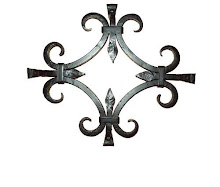Above deck - lavish quarters for the very rich. More and more decks - massive enough to accommodate assets comprising a greater and greater % of total weight - all above the water line. Resulting in more weight atop and less below.
Middle class likely at water level - fearful of falling into the huddled masses in steerage. Down where most of the cargo should be. If sanity ruled. Instead:
Below deck ballast ever decreasing...
More and more cargo space siphoned away for decks above.
The ship of state becoming ONE very top-heavy vessel.
Like the ferry that recently sank off South Korea, we're at such a tipping point. Any storm or high waves, a sharp turn: A capsize all but certain.
Certainly the rich would immediately take to their life boats. Maybe the middle class might somehow get above decks and be allowed into one or two. (If any were still abreast the sinking ship.)
But the huddled masses, below decks? Like below-deck victims trapped on the Korean ferry, they would likely drown before any made it to safety. And which of the wealthy, in any case, would allow them "room" in their rich-person's life boat? Like the crew that left the ferry, they'd already be on their way. But on their way to where?
For who would be left to actually rescue the rich? Once they topple the ship? All the servants going down with it? (Their needs - and the need for them - long forgotten.)
This is what happened to many societies where the wealthy forgot:
We're all in this together.
Some cartoonist should do me the favor of putting my words into one picture. Till then, we'll have to make do with this historical precedent:
Vasa was built top-heavy and had insufficient ballast. Despite an obvious lack of stability in port, she was allowed to set sail and foundered only a few minutes after she first encountered a wind stronger than a breeze.











